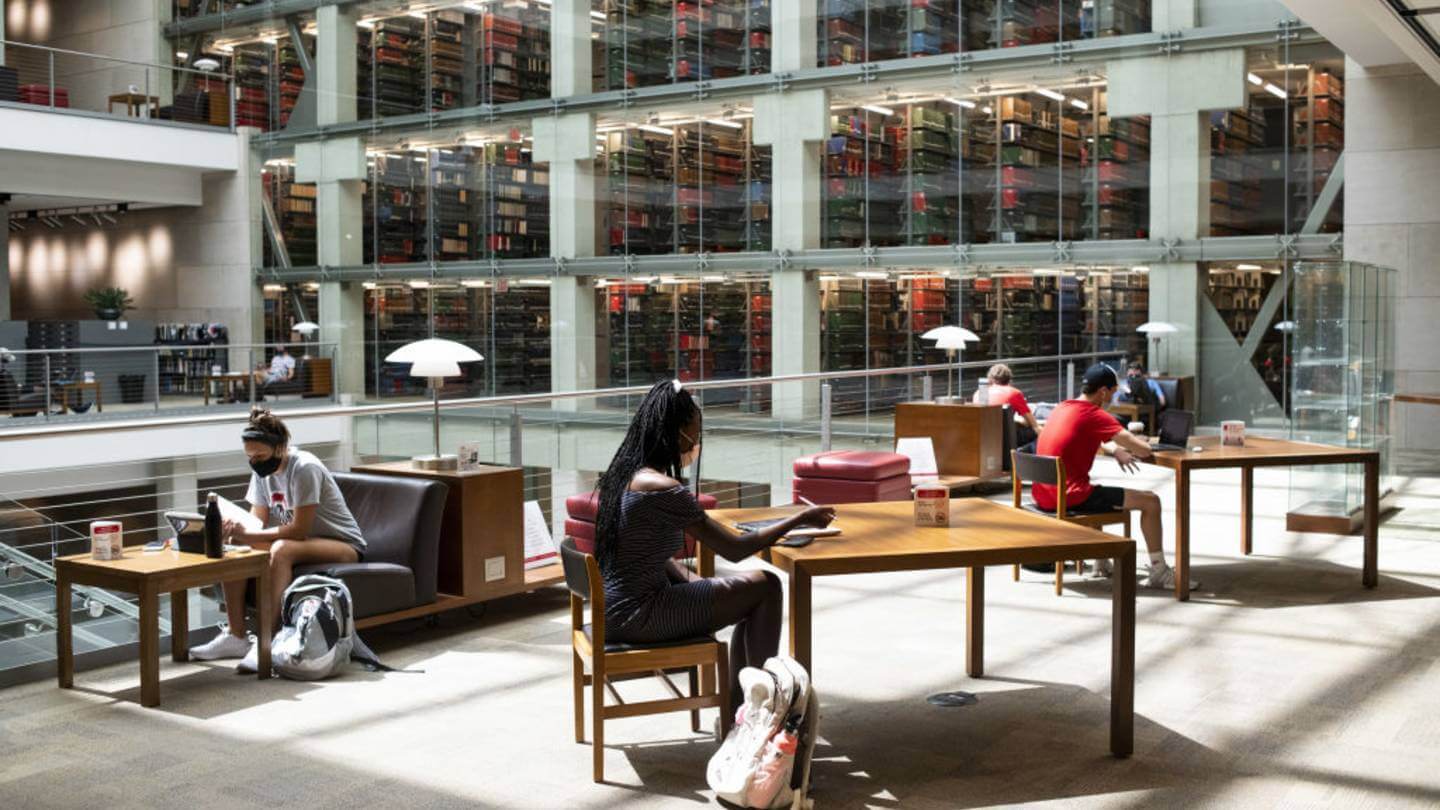Which college has the right program for me?
Should I live on or off campus?
How much is tuition going to cost me?
These are just a few of the questions future college students ask themselves. Picking the right college is a daunting task that involves many aspects, including whether or not the college is in an area with good internet service.
High-speed internet is an essential resource for college students who rely on it to write research papers, email professors, sign up for classes, submit assignments and more. The degree to which students rely on their internet has increased significantly since the start of the COVID-19 pandemic, as millions of students across the country have been required to take their courses online.
The life of a college student is endlessly busy. With the amount on their plate, the last thing college students want to worry about is their internet connection. However, not all college towns have the necessary broadband infrastructure in place to support their students’ internet needs. This is especially true in more rural parts of the country where the broadband infrastructure is either outdated or nonexistent.
Although often overlooked, a student’s ability to access the internet and to access it with high speeds and low latency has a dramatic effect on the type of education a student is able to receive. This divide between college students who are able to access high-speed internet and, therefore, receive a complete education and those who are not is a significant aspect of the digital divide. For that reason, internet access must become a consideration for students in the process of selecting a college.
This article will investigate which college towns are best connected to the internet so that prospective students can make a more informed decision about which school is truly the best fit for them.
Our methodology
In order to determine which college towns have the best internet access, the Allconnect team collected 152,187 speed tests from various colleges throughout the U.S. between October 2020 and January 2021. In order to determine rankings, the team considered student population, download speeds, internet connection type (fiber, cable or DSL) and percent covered by highest serviceable internet type. The weight each category received for determining rankings are as follows:
- Student population (10%)
- Download speeds (40%)
- Connect type (5%)
- Percent covered by highest serviceable internet type (45%)
Top 5 most connected college towns in the U.S.
Based on our methodology, we found that State College, PA; Corvallis, OR; Cambridge, MA; Ann Arbor, MI and Tusacloosa, AL are the top 5 most connected college towns in the U.S. However, all 50 college towns that made our list have download speeds that average 15% better than the national average download speed. Here’s everything you need to know:
#1 State College, PA
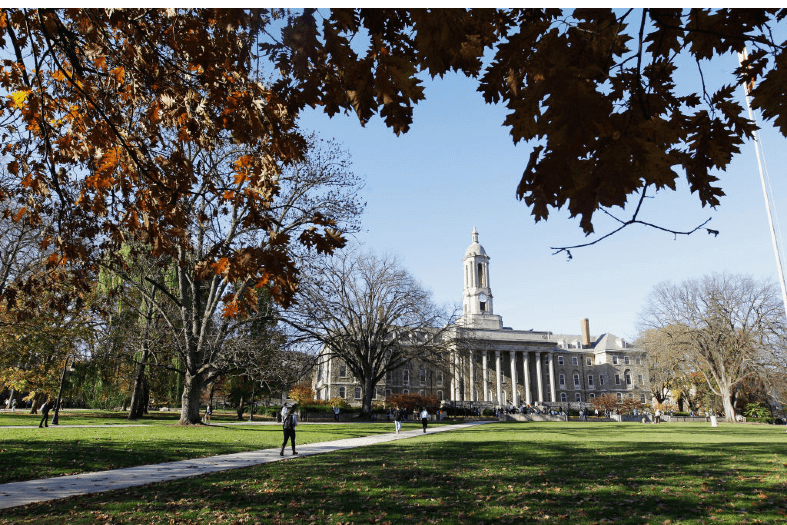
Rob Carr/Staff/Getty Images
State College, PA is home to Penn State University. There are a total of 45,518 undergraduate students in the town. Average download speeds reach 186 Mbps through a DSL internet connection. A total of 71% of State College is connected to this most serviceable internet type.
#2 Corvallis, OR
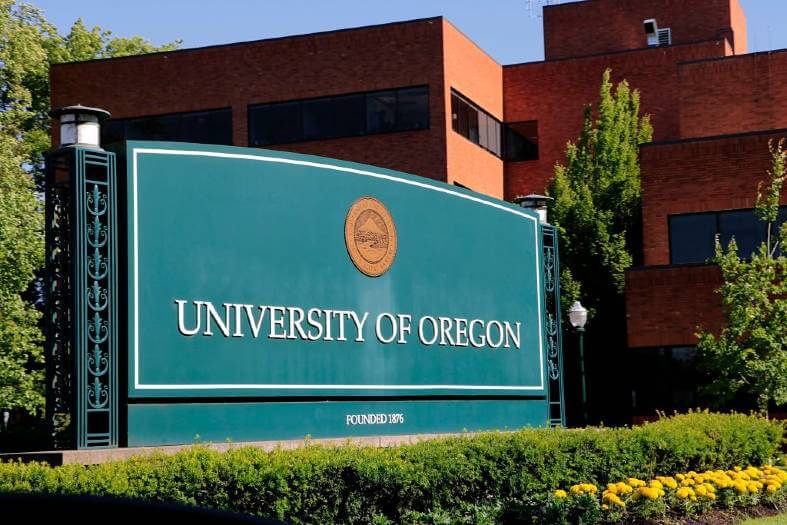
Education Images/Contributor/Getty Images
Corvallis, OR is Oregon State University’s hometown, which houses 27,952 college students. The average download speed in this college town is a little lower than State College’s speeds, at 143 Mbps. However, 98% of Corvallis is connected to the most serviceable internet type (cable internet), which is largely why it is ranked this high. There are however, faster average download speeds in other college towns that are lower on our list.
#3 Cambridge, MA
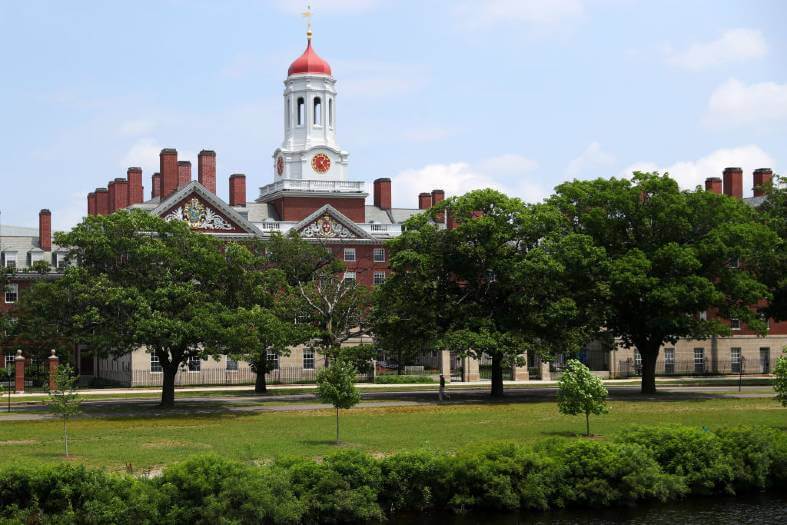
Maddie Meyer/Staff/Getty Images
Cambridge, MA is a college town for multiple well-known schools, including Harvard University and Massachusetts Institute of Technology (MIT). There are a total of 29,565 students who live in Cambridge. Cambridge is ranked 3rd for top college towns because it offers fast average download speeds (142 Mbps) and it provides its highest serviceable internet type (cable) to 50% of the population.
#4 Ann Arbor, MI
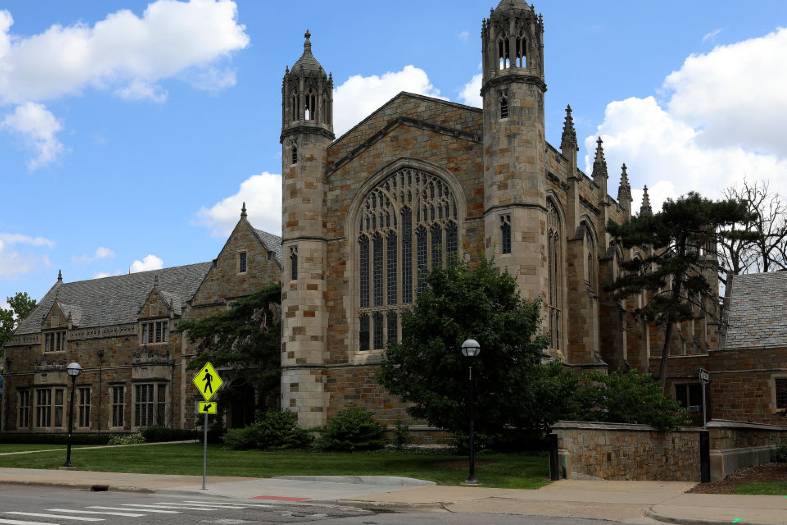
Raymond Boyd/Contributor/Getty Images
University of Michigan’s college town is Ann Arbor, which houses a total of 59,000 students. Although one of the most student-populated towns in the country, Ann Arbor is still able to offer average download speeds of 131 Mbps and provide its highest serviceable internet type (cable) to 98% of the town.
#5 Tuscaloosa, AL
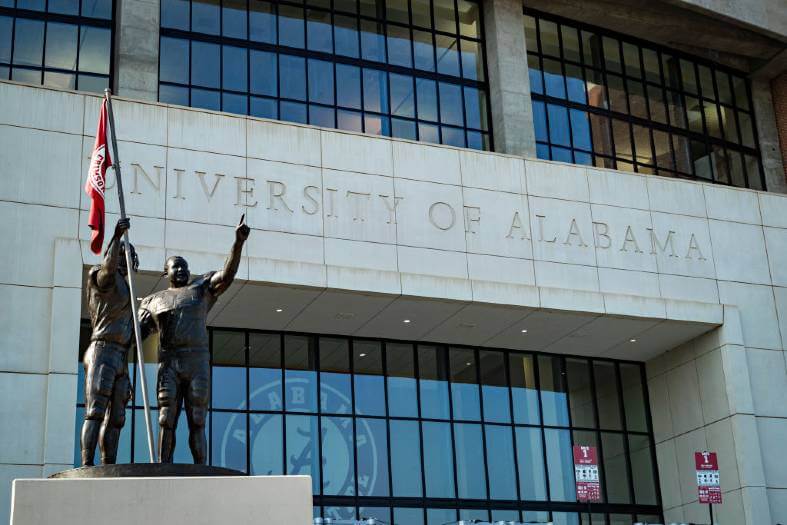
Wesley Hitt/Stringer/Getty Images
The major school located in Tuscaloosa, AL is the University of Alabama. However, there are also smaller schools located in this busy college town, including Stillman College and Shelton State Community College. There are approximately 34,852 students who live in Tuscaloosa and the average student receives 134 Mbps download speeds through a DSL connection type. Approximately 75% of the population is connected to this DSL internet type.
What internet speeds does a college student really need?
Ideally, a college will provide average download speeds of around 100 Mbps. Although the FCC currently defines high-speed internet as 25/3 Mbps (download/upload), these speeds do not allow for full online abilities, such as uploading large files (which can be essential for submitting assignments). Having access to reliable, high-speed internet is particularly important for students taking courses online, as the last thing you want is to have your Zoom call drop in the middle of an important lecture.
Students should consider contacting their prospective college if the town’s average download speeds are below 25 Mbps. Prospective students may also want to speak with current students at the college about their experience accessing the internet before they commit to a school. You do not want to spend hundreds of thousands of dollars on an education if you are unable to adequately access the internet.
Add the ZIP code of your prospective college to see what plans are available in the area.
Search internet providers for plans in your area
What off-campus students should consider when selecting an internet plan
Students who are considering living off-campus will likely want to purchase internet for their apartment. A helpful way to determine what speed plan you need is to divide the number of devices your household plans to use at a time by the speed plan you are considering buying. You will want that result to be between 25 and 40, depending on how heavily you will be using the internet. Unless there are more than four students streaming, Zooming and uploading large files at a time, for instance, then a plan around 100 Mbps should be sufficient.
With a 100 Mbps plan, students can:
- Take courses online
- Download and upload homework assignments
- Do online research
- Email and use social media
- Stream videos in 4K
- Online game
In addition to buying a fast enough internet plan, students should also pick a plan that meets their other needs when it comes to data caps, contracts and pricing. The cost of internet can add up quickly so make sure you have all the information you need before choosing a provider and plan. Students may also qualify for student discounts to help subsidize the cost.
Unfortunately, not all towns will have many internet providers or plans to choose from. In general, the more rural your college town is, the fewer options you will have. Those options will likely entail slower speeds and higher rates. Therefore, when you are selecting a college and are estimating how much money you will need to invest, make sure to consider the cost of internet if you plan to live off-campus.

Written by:
Ari HowardAssociate Writer, Broadband & Wireless Content
Ari Howard is a staff writer Healthline and spent two years as a writer on the Allconnect team. She specialized in broadband news and studies, particularly relating to internet access, digital safety, broadband-…
Read more
Edited by:
Robin LaytonEditor, Broadband Content
-
Featured
![Student and teacher internet deals & tech discounts]() Student and teacher internet deals & tech discounts Camryn Smith — 5 min read
Student and teacher internet deals & tech discounts Camryn Smith — 5 min read -
Featured
![A community guide to advocating for better broadband services]() A community guide to advocating for better broadband services Ari Howard — 7 min read
A community guide to advocating for better broadband services Ari Howard — 7 min read -
Featured
![How to lower your internet bill]() How to lower your internet bill Camryn Smith — 6 min read
How to lower your internet bill Camryn Smith — 6 min read
Latest
-
Thursday, July 25, 2024
Worried about losing your signal? This is how to keep your satellite dish cleanDavid Anders — 6 min read
-
Tuesday, July 23, 2024
The best free TV and movie streaming services 2024Camryn Smith — 5 min read
-
Tuesday, July 23, 2024
Everything you need to know about internet speedsRobin Layton — 8 min read


